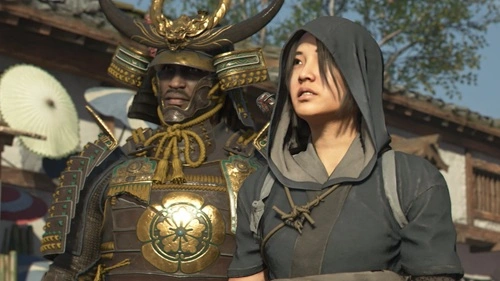In the last few months, there have been allegations and news stories saying that Ubisoft, the French video game company, would be sued by Japanese government officials or cultural groups. There is a lot of confusion about Ubisoft’s latest game, Assassin’s Creed Shadows, and how it handles Japanese cultural and religious symbols. There is also criticism and official response. Below is a list of what is known, what has been said, and whether Japan is really suing Ubisoft or not.

Background of the rumor:
The Argument Over Assassin’s Creed Shadows
The newest game in Ubisoft’s long-running “Assassin’s Creed” series, “Assassin’s Creed Shadows,” takes place in feudal Japan and has two main characters: a fictional Japanese shinobi and Yasuke, a real-life African character who is often called the “Black Samurai.”
There were a lot of things that caused the controversy:
Shrine destruction mechanics: Some gameplay video footage suggested that the insides of Shinto shrines might be destroyed (altar, drums, and other things inside). Hiroyuki Kada, a Japanese legislator, spoke out against Ubisoft in Japan’s parliament, saying that these kinds of video game contents are disrespectful to religious and cultural heritage of Japan and could lead to damage in real life.
The member of parliament further said that an authorized shrine in his district (Hyōgo Prefecture) had been taken advantage of without permission.
Public petitions: Japanese gamers and opponents of Japanese culture started petitions to change or modify the way the game shows Japanese culture. One petition, for example, said that Ubisoft had defamed Japanese history and asked that the release to be stopped.
Ubisoft Japan later apologized for utilizing a reenactment group’s banner in the game without permission.
In response, Ubisoft released a patch on the first day that changed how shrines worked. Some things in shrines and temples were made indestructible, while blood effects were toned down to avoid disrespecting the holy places.
Is there a confirmed lawsuit by Japan Govt.?
There is no official public record of the Japanese government or shrine authorities filing a lawsuit against Ubisoft company at this time. It looks like most of the pressure is coming from politics and culture, not the law:
Hiroyuki Kada’s criticism of the parliament is a political statement, not a lawsuit.
When the media talks about things like “criticized,” “pushback,” or “taking action,” they don’t always mean legal action against the gaming company.
Some posts on social media and forums say that “Japan will sue Ubisoft,” however they seem to be guesses or not true.
Ubisoft has admitted that there are cultural issues and fixed the game instead of using legal grounds.
In short, Ubisoft is getting a lot of negative coverage and calls for reform, yet there is no clear evidence that a Japanese court or shrine organization has filed any kind of lawsuit against them.
What This Means and What Might Happen:
The argument has real effects, even without a lawsuit:
Reputational risk: People are paying a lot of attention to how Ubisoft handles cultural sensitivity issues around the world.
Regulatory or cultural restrictions: Japanese goverment might push for stronger compliance to religious, cultural, or intellectual property rules, even if there is no litigation.
How Ubisoft handles this situation now may establish a standard for how other foreign developers make games set in culturally sensitive areas in the future.
In theory, if a shrine or group feels betrayed or mistreated, they may sue later, especially if it has to do with intellectual property (like using certain images) or laws against desecrating religious sites. However, nothing like that has been established yet.
Conclusion:
So, is Japan suing Ubisoft? There is no verified litigation. What is going on is a big pushback from politicians, cultural groups, and some of the public in Japan. They are mostly upset with how Assassin’s Creed Shadows shows sacred worship places and historical places. Ubisoft made changes to the game and said they were sorry and apologized to all but the matter is still complicated.